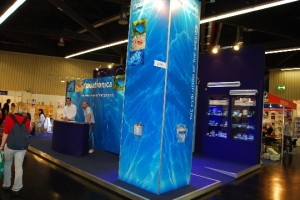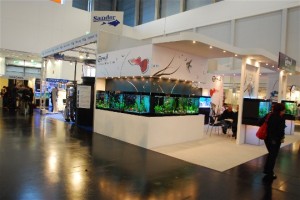

By TREVOR PADDENBURG in Hong Kong – The Sunday Times – June 05, 2010
WHALE sharks – one of WA’s most iconic creatures – are being slaughtered and sold in a backstreet Hong Kong shark-fin market.
The fins of the gentle giants, the same species that delights snorkellers off Ningaloo Reef every autumn, are sold for just $300 each and used as window displays in shark-fin shops in Hong Kong’s Sheung Wan market district.
The Sunday Times this week joined an investigation inside the Chinese territory to expose the trade in the world’s biggest fish, which is in decline and listed as vulnerable to extinction by the World Conservation Union.
Hong Kong’s Sharkfin and Marine Products Association secretary, Charlie Lim, interviewed briefly by The Sunday Times in Sheung Wan before this reporter was thrown out of his office, claimed no whale-shark fins were for sale, despite evidence on the streets.
And Mr Lim provocatively hit back at Australians who would like an international ban.
“Australia sent Aboriginal people’s heads to museums,” he said, and therefore the Chinese should be allowed to have whale-shark fins on display in shops.
Hunting the animals is legal in much of Asia, though the investigators will use the evidence from Hong Kong to pressure the Federal Government to lobby for an international ban on trade in whale-shark meat and fins.
WA whale-shark expert Brad Norman, who swam with the majestic creatures as part of his research less than 24 hours before flying into Hong Kong, led the investigation team and said he was “shocked” by the number of fins on display.
The founder of non-profit marine foundation Ecocean said his inquiries had also revealed that up to 1000 whale sharks were killed each year in China.
The revelations of whale-shark slaughter come ahead of World Ocean Day on Monday.
Perth-based UN endangered species officer Aleisha Caruso, who also joined the Hong Kong mission, said: “To think these gentle beings are mutilated and left in agony to drown in their own blood, just to end up in a window display in Hong Kong, tears out my heart.”
On Hong Kong Island’s Des Voeux Rd – known to locals as “dried seafood street” – Mr Norman and Ms Caruso found tens of thousands of dried shark fins, used in shark-fin soup and sold for up to $40 a bowl.
Dozens of giant whale-shark fins, some more than 1m and distinguishable by their telltale pattern of dots, were also mounted in windows or packaged for sale.
Mr Norman, who has studied Ningaloo’s whale sharks for 16 years, said the fins were most likely harvested in waters off Taiwan, China, Sri Lanka and the Philippines. It was unlikely they were the same sharks that visit Ningaloo, he said.
The Sunday Times was ordered out of several stores after taking photos of the gruesome shark-fin haul, which the International Humane Society says is run by Chinese triad gangs.
“Ninety per cent of the countries whale sharks visit still permit the slaughter and efforts will continue to push for their protection,” Mr Norman, a Murdoch University researcher, said. “I knew we had a problem on our hands, but not on such a shocking scale.”
WWF-Hong Kong shark officer Silvy Pun said “tonnes and tonnes” of shark fin landed on the docks every month in Hong Kong – the world’s shark-fin capital. It handled up to 80 per cent of the global trade.
Ms Caruso said destroying a whale shark for its fins was “senseless slaughter”.
“Panic-stricken, helpless and terrified, they thrash around without fins until they become exhausted and die a slow and painful death,” she said.
A spokesman for the Hong Kong Government’s Agriculture, Fisheries and Conservation Department said the sale of whale-shark fins was not illegal and fin shops were doing nothing wrong.
“(A) considerable amount of whale-shark fins have been imported legally to Hong Kong and are available in the local market,” the spokesman said.
HOW YOU CAN HELP
* Ecocean is the WA-based non-profit group dedicated to research, education and conservation of whale sharks. Support its Finish Finning campaign and donate at www.whaleshark.org.
* Swim with a whale shark at Ningaloo and consider adopting one at www.whaleshark.org/adoptashark.jsp.
























































